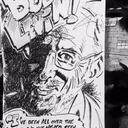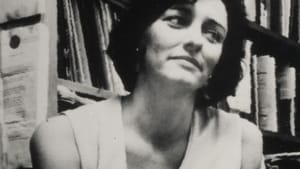Stay in the Loop
BSR publishes on a weekly schedule, with an email newsletter every Wednesday and Thursday morning. There’s no paywall, and subscribing is always free.
In February of 1966, during my second year at the University of Pennsylvania Law School, my Uncle Frank offered me a ticket to a Sunday poetry reading at the Broad Street Y. I assume he had received this ticket through his position as an English teacher at Southern High School, and I assume that he believed his nephew, who had thoughts of becoming a writer, would make better use of it than his students, about whom his feelings were more dyspeptic.
Uncle Frank had once had literary aspirations. According to family lore, he had shared tea and schmoozing in cafeterias with Clifford Odets. (Wikipedia says the Odets family left Philadelphia when Clifford was six, so. . . .) He had taught English at Southern for more than three decades, and the only pedagogical moment I can recall him relating concerned sending Mario Lanza from the classroom for disruptive behavior, and Mario standing outside the door, singing so loudly no instruction could occur. Not too long after giving me the ticket, a student pulled a knife on Uncle Frank, and he retired.
I should say, I did not grab the ticket. When I encountered poetry in English course anthologies, which was about the only place I did, whether about Grecian urns or blackbirds or even paths untaken, it did not move me. My friend Max Garden had owned A Coney Island of the Mind since high school, when the beatniks were in flower, but I owned no poetry and had attended fewer readings (zero) than bullfights (one).
I spent most evenings then in Lorna’s bar, on Penn’s campus, or Frank’s, downtown. I drank 15-cent drafts and talked to the same people about the same subjects: the Sixers, the draft, the party that would turn the weekend gold. Or I pondered how many more nights I would spend like this, repetitions weighing like rust, gears slipping, tires spinning, advancing nowhere. “I can’t get,” the jukeboxes mocked, “no satisfaction.”
But Sundays, Blue Laws shut the bars. And one of the poets reading, George Starbuck, had anti-war poems in a recent Atlantic, which weren’t bad. Plus, I might meet a magic girl.
The other poet I had never heard of.
Anne Sexton was 38. She was slim, sharp featured, with steel blue eyes and dark hair, cut above her collar. She began by quoting Kafka: Books should be an axe to cleave the frozen sea within us.
She read of drinking gin from jelly jars with a lover, during a summer, when “the door to your room was the door to mine,” — and you wished you were that lover in that room. And she read about finding letters, written from Europe in 1890, by her “always old,” unmarried great aunt, then young, about skating with — and kissing — a married count. “Life,” Sexton wants to warn her aunt, who will pass from this youth into madness and then death, “is a trick, life is a kitten in a sack” — and you, absorbing the screams of those drowning kittens, shivered like you were gliding on that icy rink. And then she read “The Double Image,” in which she speaks to her daughter Joyce, age four, about the suicide attempts and institutionalizations that caused her own mother to accuse her of causing the cancer that will kill her, and, toward the end of this recitation of insanities and fatalities and asylums, delivering, like a straight razor’s slash, the line, “We named you Joyce, so we could call you Joy.”
An act of courage
The courage to stand behind these revelations gutted me. In my bars, no one spoke like this. On my witnessed giant screens, Belmondo shared no such feelings. Bogie confessed no specifics of abuse. Sexton left me wobbling, dizzied — but exposed, somehow, through pain to hope. When I reached Sexton to say how I felt, I was as tongue-tied as, at eight, outside the visitors’ locker room at Shibe Park, I’d asked Ralph Kiner, the home-run king, for his autograph.
I tried to describe the experience to Stanley Kessler, the only law student with a Village Voice subscription. He told me how superior was the New York Y. I tried to tell David, a bookstore clerk who’d been institutionalized himself. He sold me To Bedlam and Part Way Back. Finally, I wrote my first fan letter since, at my mother’s suggestion, I had consoled Adlai Stevenson for his loss in 1952.
Anne Sexton replied, in three typed paragraphs, signed with blue ink. “I am so glad it hurt to listen to me,” she said. “You make it all worthwhile. You know, sometimes you wonder what you are doing up there reading your God damned personal poetry. Now I know.”
She had reached me and I had reached her and she had reached me again. You know that ceiling where God touches Adam? It felt like that.
Sign up for our newsletter
All of the week's new articles, all in one place. Sign up for the free weekly BSR newsletters, and don't miss a conversation.
 Bob Levin
Bob Levin
